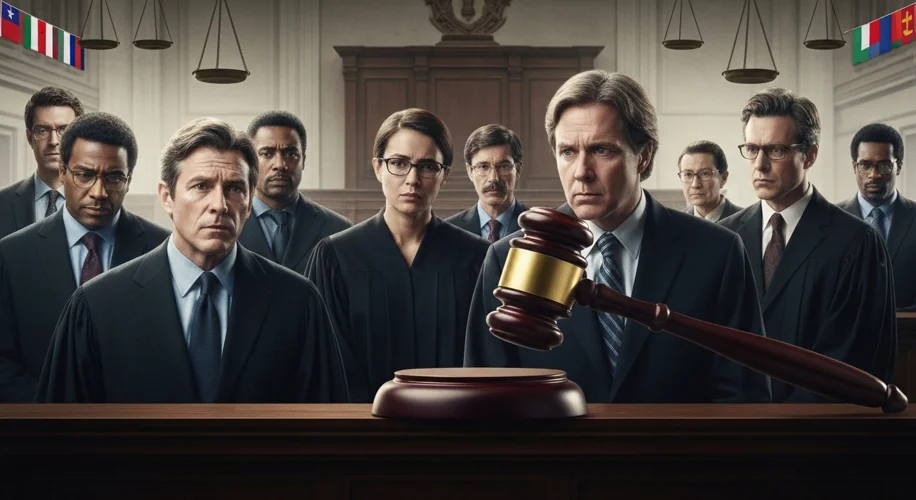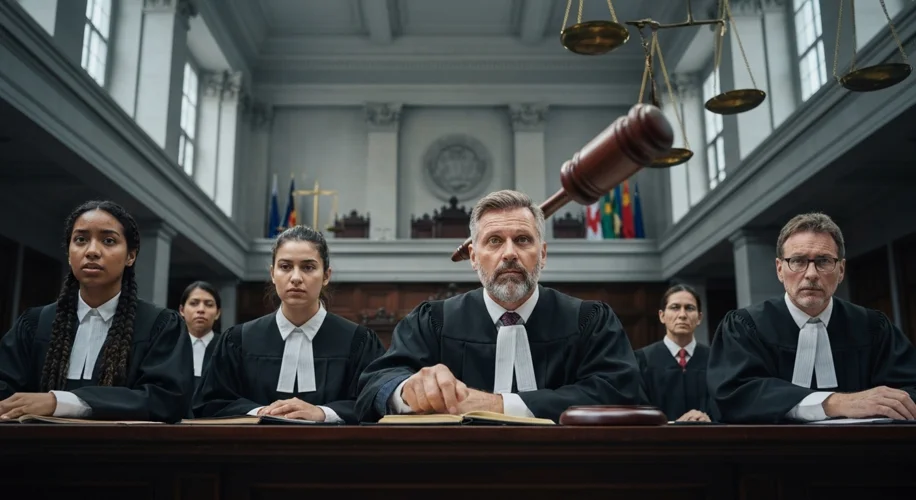The hallowed halls of academia, often perceived as bastions of free thought and open inquiry, are not immune to the political storms that rage beyond their ivy-covered walls. Indeed, the very principles that allow scholars to pursue truth, even when it challenges prevailing orthodoxies, are frequently tested. A stark reminder of this enduring tension emerged when law professors found themselves in the crosshairs of the Trump administration for their work with the International Criminal Court (ICC).
This confrontation, simmering beneath the surface of international law and national interests, thrust the fundamental concept of academic freedom into the spotlight. At its heart, academic freedom is the liberty of teachers and students to discuss and explore ideas relevant to their field of study without fear of retaliation or censorship. It is a cornerstone of robust intellectual discourse, vital for the advancement of knowledge and the education of future generations. When this freedom is threatened, the very fabric of a democratic society is weakened.
The professors in question were engaged in legitimate scholarly activities, analyzing the ICC’s work and its implications for international justice. Their engagement with the court, which investigates war crimes, crimes against humanity, and genocide, was not an act of disloyalty to their nation, but an exercise of their professional expertise. They were, in essence, doing what academics are expected to do: think critically, analyze complex issues, and contribute to global understanding. Yet, the administration viewed their work through a narrow lens of perceived national interest, imposing sanctions that amounted to a chilling message to scholars worldwide.

The administration’s actions were rooted in a complex geopolitical landscape. The United States, while a signatory to the Rome Statute that established the ICC, has not ratified it, leading to a complicated and often adversarial relationship with the court. The Trump administration, in particular, viewed the ICC as overreaching its mandate and potentially targeting American citizens. This perspective, while understandable from a sovereign nation’s point of view, clashed directly with the academic imperative to engage with and critique international institutions, regardless of national affiliation.
The professors’ challenge to these sanctions was not merely a personal grievance; it was a defense of a principle that underpins the entire academic enterprise. They argued that their work was protected by the First Amendment, which safeguards freedom of speech, and that the administration’s actions constituted an infringement upon their academic freedom. This legal battle highlighted the critical question: where does the government’s interest in national security or foreign policy end, and where does the individual’s right to academic inquiry begin?
The consequences of such actions extend far beyond the immediate individuals involved. When governments punish scholars for their research, especially on sensitive international issues, it can stifle critical dialogue, discourage international collaboration, and ultimately hinder the pursuit of a more just and peaceful world. Academics may self-censor, fearing that their work could invite governmental scrutiny or retribution. This creates an intellectual environment where important but potentially controversial topics are avoided, leaving gaps in our collective understanding.
The history of academic freedom is replete with instances where scholars have faced pressure for their beliefs or research. From the McCarthy era’s red scares, which saw academics accused of communist sympathies, to more recent debates about the politicization of research, the struggle to maintain intellectual independence has been ongoing. This latest episode serves as a potent reminder that the fight for academic freedom is not a relic of the past but a vital, ongoing battle.
The legacy of this confrontation will undoubtedly shape how future administrations interact with academics engaged in international affairs. It raises crucial questions about the role of legal scholars in a globalized world and the extent to which their pursuit of knowledge should be constrained by national political agendas. The First Amendment, designed to protect a wide range of expression, must continue to be interpreted in a way that allows for robust academic discourse, even when that discourse intersects with complex and often contentious international matters. The health of our democracy, and indeed our understanding of the world, depends on it.

